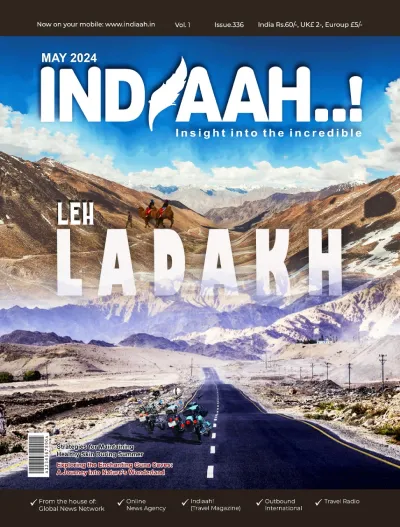
As India’s tourism industry rebounds strongly from the pandemic slump, Aashish Gupta, Consulting CEO of FAITH, issued a clarion call about the tourism sector. He said, government must move in lockstep to sustain momentum and position India as a global travel leader.
Vision: Building Momentum, Avoiding Complacency
“India has been formally placed in terms of branding our travel destinations,” said Gupta, urging unified action from both central and state governments—across tourism, civil aviation, roads, and railways—to ensure India doesn’t lose the advantages gained post–G20 Summit.
He underscored that while recovery is underway, “the tourism industry had to go through a lot due to the pandemic but it is recovering well and we have a long way to go”
Three Pillars to Solidify Growth
Gupta highlighted a three‑point strategic agenda:
* Marketing elevation: “We need to tap our key source markets with an intensive marketing campaign” to surpass India’s pre-pandemic peak of 11 billion foreign tourist visits (2019 benchmark). Gupta stressed urgency: “We’re are almost there …” .
* Integration across infrastructure ministries: Gupta said aligning the Ministry of Tourism with civil aviation, roads, and railways is vital to strengthen last‑mile connectivity—which currently remains fragmented even in well-known destinations .
* Cleanliness and sustainability: He advocated policies to make India cleaner—from sustainable waste management to eco‑friendly in‑destination infrastructure—keeping in mind a tourism lens.
Reflections on Crisis Preparedness and Institutional Support
While Gupta’s recent public interventions, and his earlier commentary remains relevant. He previously called for the creation of a joint tourism crisis management task force under the PMO to mitigate risks that impact the entire travel value chain—from inbound to outbound, hotels to transit operators—especially following COVID‑19 challenges.
Analytical Leadership & Industry Perspective
Although not part of tourism discourse, Gupta has also voiced economic and financial views in broader forums. In another context, he warned of systemic liquidity risks in India’s financial system—offering deep scrutiny into borrowing practices and institutional transparency as potential triggers of instability.
Why This Matters
Gupta’s recent remarks blend strategic clarity with urgency. As international tourist numbers rebound, India stands at a crossroads: without coordinated marketing, seamless connectivity, and environmental foresight, much of the recovery could falter. His roadmap provides not just direction but accountability

